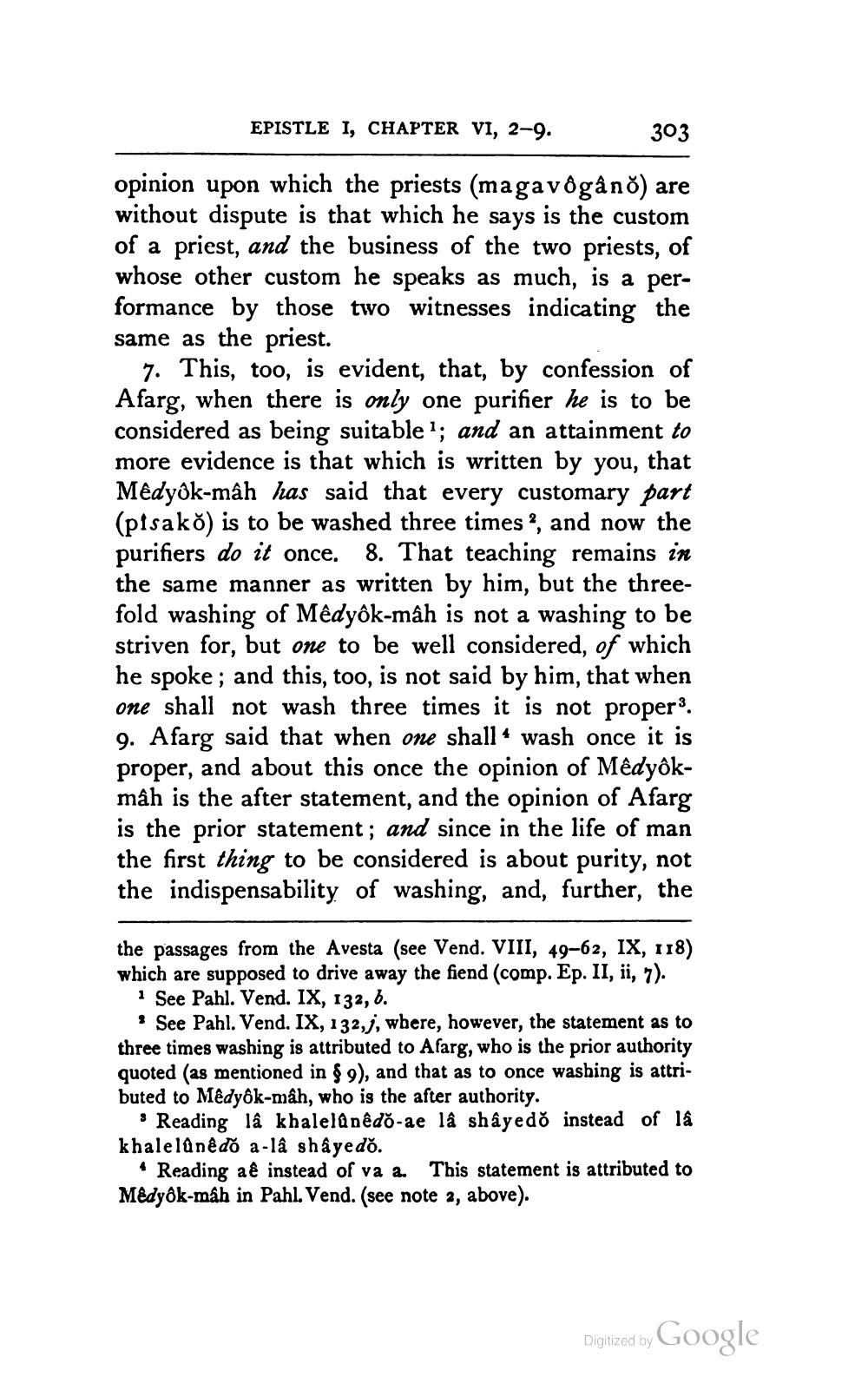________________
EPISTLE I, CHAPTER VI, 2-9.
303
opinion upon which the priests (magavôgâno) are without dispute is that which he says is the custom of a priest, and the business of the two priests, of whose other custom he speaks as much, is a performance by those two witnesses indicating the same as the priest.
7. This, too, is evident, that, by confession of Afarg, when there is only one purifier he is to be considered as being suitable ; and an attainment to more evidence is that which is written by you, that Medyok-mâh has said that every customary part (pisako) is to be washed three times?, and now the purifiers do it once. 8. That teaching remains in the same manner as written by him, but the threefold washing of Mêdyôk-mâh is not a washing to be striven for, but one to be well considered, of which he spoke ; and this, too, is not said by him, that when one shall not wash three times it is not proper 3. 9. Afarg said that when one shall* wash once it is proper, and about this once the opinion of Médyôkmâh is the after statement, and the opinion of Afarg is the prior statement; and since in the life of man the first thing to be considered is about purity, not the indispensability of washing, and, further, the
the passages from the Avesta (see Vend. VIII, 49–62, IX, 118) which are supposed to drive away the fiend (comp. Ep. II, ii, 7).
1 See Pahl. Vend. IX, 132,6.
· See Pahl. Vend. IX, 132,j, where, however, the statement as to three times washing is attributed to Afarg, who is the prior authority quoted (as mentioned in $ 9), and that as to once washing is attributed to Mêdyök-mâh, who is the after authority.
Reading la khalelanêdo-ae lå shayedo instead of la khalelûnê do a-lâ shayedo.
. Reading aê instead of va a. This statement is attributed to Medyok-mâh in Pahl. Vend. (see note 2, above).
Digitized by Google




